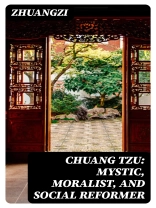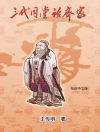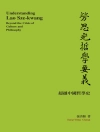In ‘Chuang Tzu: Mystic, Moralist, and Social Reformer, ‘ Zhuangzi presents a profound exploration of Daoist philosophy woven through parables and allegories that challenge conventional thought. Employing a whimsical yet incisive literary style, the text juxtaposes humor with deep moral questions, allowing readers to engage with themes of relativism, the nature of reality, and the pursuit of harmony. Set against the backdrop of the Warring States period in China, this work reflects the socio-political turmoil of its time, revealing a holistic perspective that seeks to transcend rigid societal norms and promote a more authentic existence. Zhuangzi, a seminal figure in Daoism, draws from his experiences in a fluctuating society, embedding personal reflections on spirituality, governance, and individuality within his narrative. His life in a time of instability likely inspired his critiques of established institutions, as well as his advocacy for a return to simpler, nature-oriented living. Zhuangzi’s unique blend of mysticism and practical ethics situates him as not only a philosopher but also a subtle social reformer, aiming to illuminate the path towards personal and societal flourishing. This text is highly recommended for readers interested in ancient philosophy, as it invites them to question their perceptions and the rigid structures of society. Through Zhuangzi’s engaging tales, readers will find themselves on a transformative journey of thought, encouraging a deeper understanding of the self and the world around them.
关于作者
Zhuangzi, also known as Chuang Tzu, is a pivotal figure in Chinese philosophy, whose work has had lasting influence over millennia. Born around the 4th century BCE, his philosophical texts expound on Taoism, offering profound insights into the nature of existence, the relativity of perspective, and the virtue of spiritual freedom. Predominantly known for his eponymous work, ‘Chuang Tzu: Mystic, Moralist, and Social Reformer’, his contemplative parables and fantastical tales articulate a way of living that emphasizes the importance of transcending the boundaries of conventional reasoning and societal norms. Zhuangzi’s literary style is characteristically marked by whimsy, paradox, and a deep love for the natural world, highlighting the artistically allegorical aspect of ancient Chinese prose. His teachings critique rigid dogmatism and celebrate the fluidity of truth as experienced through the Dao (Tao), or the ‘Way’. Zhuangzi’s philosophy not only critiques moralism but also presents a sophisticated relativist ethical vision that has continued to inspire philosophers, writers, and artists alike. His legacy extends beyond the confines of purely scholarly interest, touching the spiritual and existential enquiries of individuals throughout time, making him a timeless sage whose philosophies resonate with the quest for personal freedom and harmony with the cosmos.












